Are you interested in launching a solar energy products sales and installation business in Uganda? With the increasing demand for clean energy, installing solar panels for residential and commercial customers is one of the most significant business opportunities in Uganda’s solar energy sector. Solar energy companies can install small-scale solar power systems for homes, schools, hospitals, and other small businesses that are off-grid or experiencing frequent power outages.
If you’re looking to start a solar energy business in Uganda, you will need to conduct thorough market research to understand the current demand for solar products and services. You should also identify your target market and determine the types of solar products and services that will best meet their needs. Additionally, you will need to comply with the necessary regulations and obtain the required licenses and permits to operate a solar energy business in Uganda.
Starting a solar energy business in Uganda can be a rewarding venture, both financially and environmentally. By providing sustainable energy solutions to customers, you can help reduce their energy costs and contribute to the country’s efforts to combat climate change. With the right planning, research, and execution, your solar energy business can shine bright in Uganda’s solar energy sector.
Understanding Solar Energy
Basics of Solar Energy
Solar energy is the energy that comes from the sun. It is a renewable source of energy that can be used to generate electricity. Solar panels, also known as photovoltaic (PV) panels, convert sunlight into electricity. The process of converting sunlight into electricity is called the photovoltaic effect. When sunlight hits the solar panel, it causes the electrons in the panel to move, generating an electric current.
Solar panels are made up of photovoltaic cells, which are made of silicon. Silicon is a semiconductor that can conduct electricity. When sunlight hits the silicon, it causes the electrons to move, generating an electric current. The more sunlight that hits the solar panel, the more electricity it generates.
Benefits of Solar Energy
There are many benefits to using solar energy. Here are some of the most significant benefits:
-
- Renewable: Solar energy is a renewable source of energy. The sun will continue to shine for billions of years, so solar energy will never run out.
-
- Cost-effective: Once you have installed solar panels, you can generate your own electricity for free. This can save you a lot of money on your electricity bills.
-
- Environmentally friendly: Solar energy is a clean source of energy that does not produce any greenhouse gases or other pollutants. This makes it an environmentally friendly source of energy.
-
- Low maintenance: Solar panels require very little maintenance. They can last for up to 25 years, and they do not require any fuel or moving parts.
-
- Energy independence: By generating your own electricity with solar panels, you can become more energy independent. You will not be reliant on the electricity grid, which can be unreliable in some areas.
Overall, solar energy is a great source of energy that has many benefits. By understanding the basics of solar energy and the benefits it provides, you can make an informed decision about whether it is the right choice for your energy needs.
Financing
Starting a solar energy products sales and installation business in Uganda requires significant financial investment. Before launching your business, it’s important to determine the start-up costs and identify potential sources of financing.
Start-up Costs
The start-up costs for a solar energy products sales and installation business in Uganda will depend on various factors, such as the size of the business, the products offered, and the location. Some of the common start-up costs include:
-
- Office space rental or purchase
-
- Equipment and tools for installations
-
- Solar energy products inventory
-
- Marketing and advertising expenses
-
- Employee salaries and benefits
-
- Legal and accounting fees
-
- Insurance premiums
startup costs and the estimated prices
|
Start-up Costs |
Estimated Prices
|
|
Office space rental or purchase
|
UGX 2,500,000 – UGX 5,000,000 per month
|
|
Equipment and tools for installations
|
UGX 2500,000- UGX 5000,000
|
|
Solar energy products inventory
|
UGX 5000,000 – UGX 10,000,000
|
|
Marketing and advertising expenses
|
UGX 1,000,000 – UGX 3000,000
|
|
Employee salaries and benefits
|
UGX 5000,000 – UGX 10,000,000 per year
|
|
Legal and accounting fees
|
UGX 500,000 – UGX 1000,000
|
|
insurance premiums
|
UGX 2,000,000 – UGX 5,000,000 per year
|
Note: that these prices are estimates and may vary depending on various factors such as the location and size of the business, the quality of the products, and the suppliers used. It’s important to conduct thorough research and analysis to determine the actual costs for your specific business.
It’s important to conduct a thorough analysis of the start-up costs to ensure that you have sufficient funds to launch and sustain your business.
Financing Options
There are various financing options available for launching a solar energy products sales and installation business in Uganda. Some of the common options include:
-
- Loans: You can apply for a loan from a bank, microfinance institution, or other financial institution. The loan can be secured or unsecured, and the interest rates and repayment terms will vary depending on the lender.
-
- Grants: Various organizations and government agencies offer grants for renewable energy businesses. These grants can be used to fund start-up costs or to expand an existing business.
-
- Equity financing: You can raise capital by selling shares of your business to investors. This option is suitable for businesses that have a high growth potential and can offer investors a good return on investment.
-
- Crowdfunding: You can use crowdfunding platforms to raise funds from a large number of people who are interested in supporting your business.
It’s important to develop a financial plan for your business that takes into account the start-up costs, financing options, and projected revenue streams. This will help you make informed decisions about the financing options that are best suited for your business.
Product Selection
Selecting the right solar energy products to sell and install is crucial for the success of your business. As you choose your products, consider the quality, pricing, and availability of the products. Here are some steps to help you select the right products:
Research the Market
Before selecting your products, research the solar energy market in Uganda to understand the demand and the competition. Identify the most popular products and the suppliers that offer them. Consider attending industry events and conferences to learn more about the latest trends and technologies in the solar energy sector.
Determine Your Niche
Consider specializing in a specific niche within the solar energy market. For example, you may focus on selling and installing solar panels for residential customers, or you may specialize in solar water heaters for commercial customers. Specializing in a niche can help you differentiate your business and stand out from the competition.
Choose High-Quality Products
Investing in high-quality solar energy products is crucial for the success of your business. Choose products that are durable, efficient, and reliable. Consider working with reputable suppliers who offer warranties and after-sales support.
Determine Your Pricing Strategy
Your pricing strategy will depend on various factors such as the cost of the products, the competition, and the demand. Consider offering competitive prices while maintaining a reasonable profit margin. You may also consider offering financing options to make your products more affordable for customers.
Build Relationships with Suppliers
Building strong relationships with suppliers is important for ensuring a steady supply of high-quality products. Consider attending trade shows and events to meet with suppliers and learn more about their products and services. Negotiate favourable terms and conditions with your suppliers to ensure that you can offer competitive prices and maintain a healthy profit margin.
By following these steps, you can select the right solar energy products for your business and position yourself for success in the growing solar energy market in Uganda.
Most trending solar products in Uganda.
Solar Panels:
Solar panels are in high demand in Uganda as they provide a reliable and affordable source of electricity. They are used to power homes, businesses, and public institutions such as schools and hospitals. It’s important to offer high-quality solar panels that are efficient and durable.
Solar Water Heaters: Solar water heaters are popular in Uganda as they provide a cost-effective way to heat water using solar energy. They are used in homes, hotels, and other commercial buildings. It’s important to offer a range of solar water heaters that are suitable for different types of buildings and water usage.
Solar Batteries:
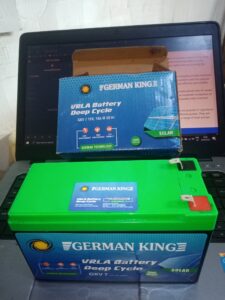
Solar batteries are used to store excess energy generated by solar panels for later use. They are popular in Uganda as they provide a reliable source of backup power during power outages. It’s important to offer high-quality solar batteries that are efficient and long-lasting.
Solar Lights:

Solar lights are used to provide lighting in homes, streets, and public spaces using solar energy. They are popular in Uganda as they provide a cost-effective and environmentally friendly alternative to traditional lighting. It’s important to offer a range of solar lights that are suitable for different types of spaces and lighting needs.
Solar Charge Controllers:
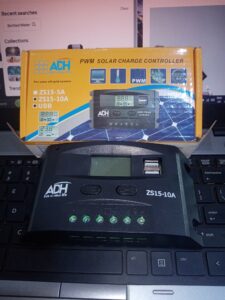
Solar charge controllers are used to regulate the charging of solar batteries and prevent overcharging. They are an essential component of solar energy systems and are popular in Uganda. It’s important to offer high-quality solar charge controllers that are efficient and reliable.
Solar Inverters: Solar inverters are used to convert DC power generated by solar panels into AC power that can be used to power appliances and other electrical devices. They are an essential component of solar energy systems and are popular in Uganda. It’s important to offer high-quality solar inverters that are efficient and reliable.
Solar Pumps:
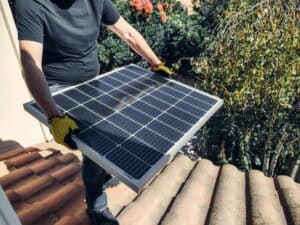
Solar pumps are used to pump water using solar energy. They are popular in Uganda as they provide a cost-effective and environmentally friendly alternative to traditional pumps. They are used in agriculture, irrigation, and other applications. It’s important to offer a range of solar pumps that are suitable for different types of applications and water usage.
By offering these trending solar energy products, entrepreneurs can tap into the growing demand for renewable energy solutions in Uganda and position themselves for success in the local market.
Marketing and Sales Strategies
Marketing and sales strategies are crucial for the success of your solar energy business in Uganda. Here are some strategies to help you reach your target customers and increase sales:
Develop a Strong Brand Identity
Developing a strong brand identity is important for building trust and credibility with your customers. Create a logo and a tagline that reflects your values and mission. Use consistent branding across all your marketing materials, including your website, social media, and advertising.
Build a Professional Website
A professional website is essential for showcasing your products and services and attracting potential customers. Your website should be easy to navigate, visually appealing, and mobile-friendly. It should also include detailed product descriptions, pricing information, and customer testimonials.
Leverage Social Media
Social media is a powerful tool for reaching your target customers and building brand awareness. Create profiles on popular social media platforms such as Facebook, Twitter, and Instagram. Post regular updates about your products and services, share customer testimonials, and engage with your followers.
Attend Trade Shows and Events
Attending trade shows and events is a great way to showcase your products and services and connect with potential customers. Look for relevant events in your industry and consider exhibiting or sponsoring a booth. Network with other businesses and industry experts to learn about the latest trends and technologies.
Offer Financing Options
Offering financing options such as installment payments or leasing can make your products more affordable for customers. Partner with financial institutions or microfinance organizations to offer flexible financing options. Make sure to communicate the financing options clearly to customers and provide excellent customer service throughout the process.
Provide Excellent Customer Service
Providing excellent customer service is essential for building trust and loyalty with your customers. Respond to customer inquiries and complaints promptly and professionally. Offer after-sales support and warranties to ensure customer satisfaction. Encourage customers to leave reviews and testimonials to build social proof and attract new customers.
By implementing these marketing and sales strategies, you can reach your target customers and increase sales for your solar energy business in Uganda.
Examples of the most popular solar energy products sales and installation businesses in Uganda:
-
- SolarNow: SolarNow is a leading solar energy company in Uganda that offers a range of solar products and services, including solar panels, solar water heaters, solar lights, and solar pumps. They have a network of branches across the country and offer financing options to make their products more affordable for customers.
-
- Fenix International: Fenix International is a solar energy company that specializes in providing affordable and reliable solar energy solutions to off-grid communities in Uganda and other African countries. They offer a range of solar products, including solar home systems, solar lights, and solar chargers.
-
- Green Energy Africa: Green Energy Africa is a solar energy company that offers a range of solar products and services, including solar panels, solar water heaters, and solar pumps. They have a team of experienced technicians who install and maintain their products, and they offer financing options to make their products more affordable for customers.
-
- Solar Energy for Africa: Solar Energy for Africa is a solar energy company that specializes in providing solar energy solutions to homes and businesses in Uganda. They offer a range of solar products, including solar panels, solar water heaters, and solar lights. They also offer training and education programs to promote sustainable energy practices.
-
- Solar Power Uganda: Solar Power Uganda is a solar energy company that offers a range of solar products and services, including solar panels, solar water heaters, and solar lights. They have a team of experienced technicians who install and maintain their products, and they offer financing options to make their products more affordable for customers.
These solar energy companies have established a strong presence in Uganda and have built a reputation for providing high-quality solar products and services to their customers. By offering a range of solar products and services and providing excellent customer service, they have positioned themselves for success in the growing solar energy market in Uganda.
Installation and Customer Service:
A successful solar energy products sales and installation business is not just about selling quality products; it’s also about ensuring seamless installation and exceptional customer service. This step is crucial as it directly impacts customer satisfaction, which, in turn, can lead to positive word-of-mouth recommendations and repeat business. Here’s how you can excel in the installation process and customer service:
Professional Installation:
-
- Skilled Technicians: Hire and train a team of skilled technicians with expertise in solar panel installation, wiring, and system integration.
-
- Quality Assurance: Develop standard operating procedures for installations to ensure consistent quality across all projects.
-
- Site Assessment: Conduct thorough site assessments to determine the optimal placement and configuration of solar panels for maximum energy efficiency.
Installation Process:
-
- Preparation: Gather all necessary equipment, tools, and materials required for the installation.
-
- Safety Measures: Prioritize safety by ensuring your team follows all safety protocols during the installation process.
-
- Efficient Execution: Carry out the installation process efficiently while minimizing disruption to the customer’s property and daily activities.
After-Sales Support:
-
- Customer Orientation: Once the installation is complete, provide the customer with a detailed explanation of how the system works and how they can monitor its performance.
-
- Maintenance Schedule: Establish a maintenance schedule to ensure that customers’ solar systems continue to perform optimally over time.
-
- Troubleshooting: Offer prompt troubleshooting and technical support in case customers encounter any issues with their systems.
Customer Service:
-
- Responsive Communication: Maintain open and responsive communication channels for customers to reach out with questions or concerns.
-
- Prompt Resolutions: Address customer inquiries and problems promptly, demonstrating your commitment to their satisfaction.
-
- Feedback Collection: Encourage customers to provide feedback on their experience with your products and services, and use this feedback to improve.
Warranty and Guarantees:
-
- Clear Policies: Clearly outline warranty terms and guarantees associated with your products and installations.
-
- Honoring Commitments: Honor your warranty commitments and resolve any issues within the stipulated timeframes.
Continuous Training:
-
- Skill Enhancement: Provide ongoing training to your installation team to keep them updated on the latest technologies and best practices in the solar industry.
-
- Customer Interaction Skills: Train your staff to effectively communicate with customers, answer questions, and address concerns.
Customer Education:
-
- Energy Management: Educate customers on how to manage their energy consumption to optimize the benefits of their solar systems.
-
- Environmental Impact: Highlight the positive environmental impact of using solar energy, fostering a sense of pride among your customers.
By prioritizing professional installation, responsive customer service, and continuous support, your solar energy business can build a reputation for reliability and excellence. Happy customers are more likely to recommend your services to others, contributing to the long-term success and growth of your business in Uganda’s renewable energy market.
Fun Fact:
Did you know: Uganda receives an average of 5 hours and 30 minutes of sunlight every day throughout the year? That’s an incredible 2,000 hours of potential sunshine annually! By harnessing this abundant solar resource, entrepreneurs in Uganda have the power to not only create thriving solar energy businesses but also contribute significantly to the nation’s sustainable future. So, don’t just start a business – start a solar revolution under the African sun!
Conclusion:
As the sun rises on Uganda’s promising future, so does the potential for entrepreneurs to make a lasting impact through solar energy businesses. By embarking on this journey, you’re not only embracing innovation and financial growth but also becoming a driving force for positive change.
With a robust plan, dedication to quality, and a heart set on sustainability, your solar energy products sales and installation business can illuminate homes, empower communities, and shine a light on a brighter, greener tomorrow.
The path ahead may have its challenges, but remember, every panel you install is a step towards a cleaner, more energy-efficient future for Uganda. Let your venture be the catalyst that turns sunlight into opportunity and transforms lives along the way. The energy revolution starts with you!

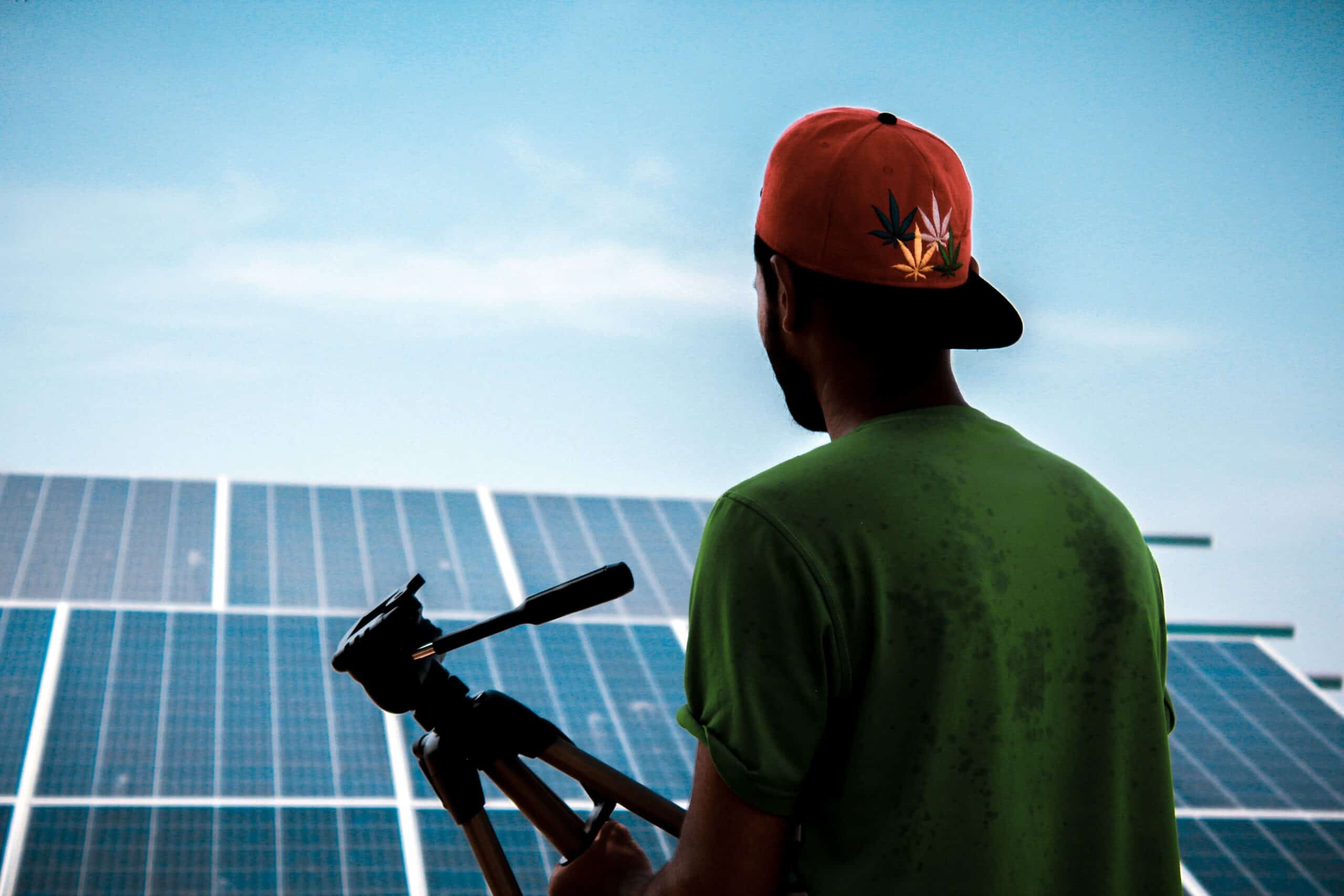
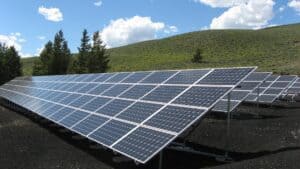




3 thoughts on “Starting a Solar Energy Products Sales and Installation Business in Uganda: A Step-by-step Guide”
Relevant post. Thanks
Thank you for every other excellent article. The place else may anyone get that type of
info in such a perfect way of writing? I’ve a presentation next week, and I’m at the search for such information.
Hi! Someone in my Myspace group shared this site with us so
I came to look it over. I’m definitely enjoying the information. I’m bookmarking and will be tweeting this to my followers!
Wonderful blog and wonderful design.